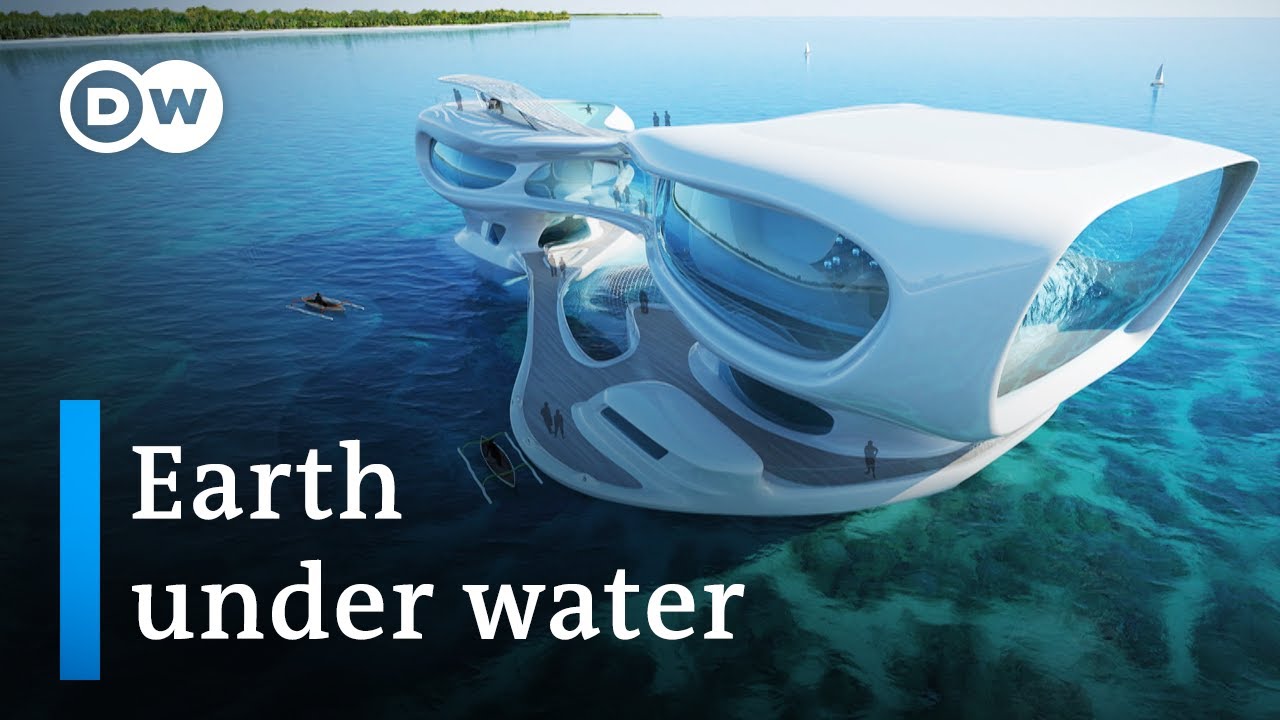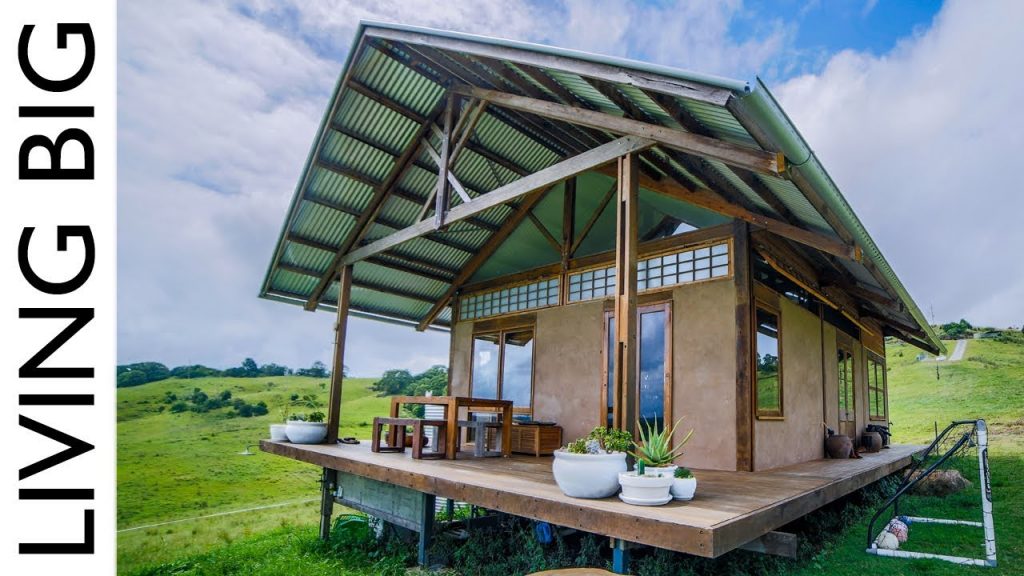Climate change – living on the water

Sea levels are rising faster and faster, threatening 700 million people who live on the world’s coasts. Will water become the habitat of the future?
Visionary projects for a life with the tides are forging ahead worldwide.
Experts forecast that by 2100, sea levels will be two meters higher than they are today. This could force 40 percent of the world’s population out of their homes, for example, in Mumbai, Tokyo, Guangzhou or Bangladesh. The US won’t be spared either. Miami, New Orleans and New York would also have to be evacuated. Entire city districts would be under water. Climate change would drastically alter our metropolitan areas.
That’s why ideas that originated in science fiction have now becoming reality. Floating and underwater buildings could become places of refuge. What sounds like a utopia is soon to become reality. The first pioneers are already living in floating neighborhoods. Could the South Pacific paradise of Tahiti also be saved in this way?
This is still all tantalizing luxury. Visionary hotel operators offer rooms with an underwater view. Or dinner during which fish and marine life are a feature in floating restaurants. Many of these futuristic plans involve water. Will we be farming on the sea? Will the “SeaOrbiter” floating research station designed by Parisian architect Jacques Rougerie get underway soon? Or will we walk through seaports on floating boulevards?
What are some of the challenges associated with living on the water, and how can they be addressed?
Climate change is a growing concern across the world. The changes in temperature, weather patterns, and rising sea levels are affecting communities in various ways. One of the most significant impacts of climate change is the increased flooding of coastal regions. This has led many people to consider the possibility of living on the water as a solution to climate change.
Living on the water is not a new concept. For centuries, people have lived on houseboats, barges, and pontoons. However, the idea of living on the water to combat climate change has gained popularity in recent years. Floating homes, water-borne communities, and amphibious architecture are some of the options that people are exploring.
One of the significant benefits of living on the water is that it can be a sustainable option. The homes can be designed to minimize their environmental impact and can make use of renewable energy sources, such as solar power. Furthermore, the homes’ water source can be treated and reused, thus reducing the demand on freshwater supplies. In addition, living on the water can provide a close connection to nature, which can help to encourage people to live more environmentally conscious lifestyles.
Living on the water can also provide a way to adapt to the impacts of climate change. As sea levels rise, many coastal communities will become more vulnerable to flooding. Living on the water can provide a way to stay safe and dry during these events. Moreover, floating homes can be designed to rise with the water level, allowing them to adapt to changing conditions.
However, there are also challenges associated with living on the water. Floating homes may require more maintenance than traditional land-based homes, and the cost of living on the water can be more expensive. In addition, floating homes may be more vulnerable to storms and other weather events, which can cause damage.
In conclusion, the idea of living on the water as a way to combat climate change is an intriguing possibility. While there are challenges associated with this lifestyle, it can also offer a sustainable and adaptable solution to the effects of climate change. With careful planning and consideration, living on the water may be a viable option for many people in the coming years.










The Truth About Full-Time Family Travel!
Family of 5 Living Off-Grid | BOAT ACCESS ONLY
Building a Cabin from Pallet Wood: Cheap Off Grid Homestead
Beautiful close encounter with manatees seeking refuge in Florida.
Find Me A Luxury Home